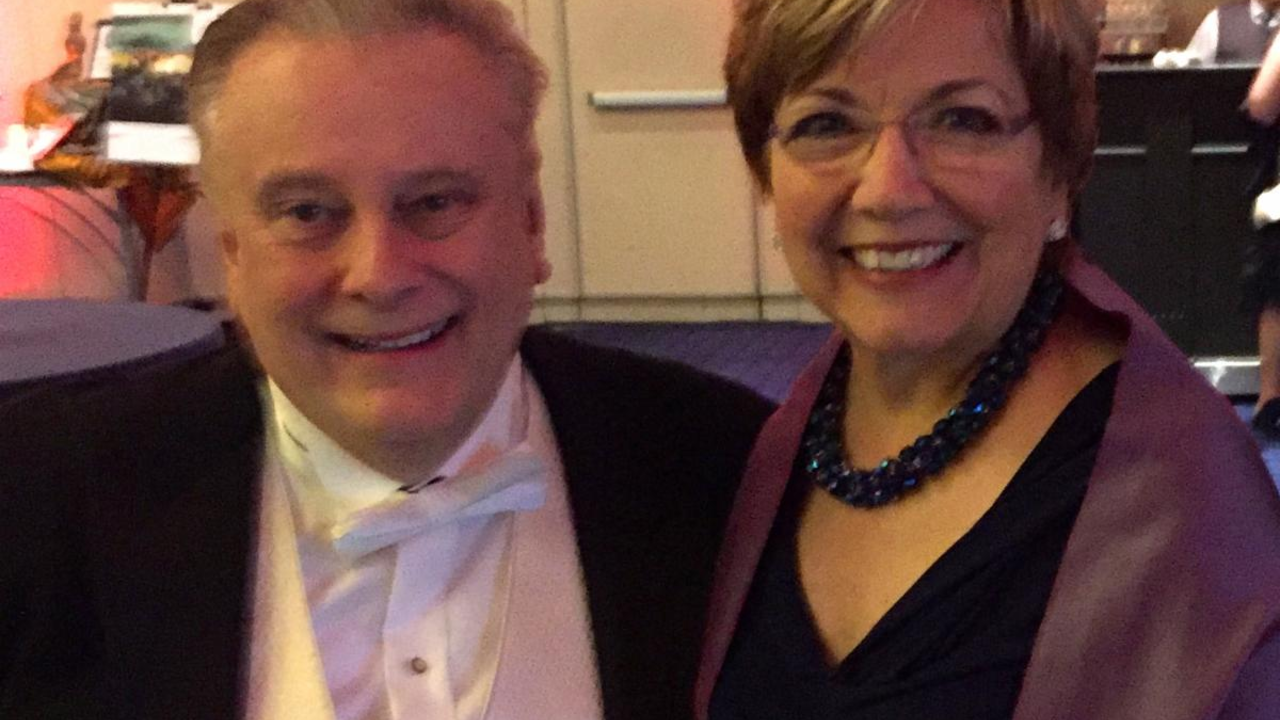Blog
It Starts With Staffing

In hospice, your only product is service, and nothing is more important to that than proper staffing. No matter how powerful your mission statement is or how beautiful your facility, your people have to be service-oriented and fully committed to the work. Hospice doesn’t run on a nine-to-five, five-day week; it’s 24/7, and we can never be less than our best. We deal daily with the dying and the grieving, and that means that everyone, from the social worker to the nurses’ aide to the bookkeeper, has to be emotionally stable and mature enough to handle that.
What do you look for in a potential hire? My first priority in doing executive searches for clients today is the same as it was when I was hiring as an hospice Executive Director; I look for people who have a belief in something greater than themselves. I don’t mean religion necessarily, but faith in goodness, faith in humankind, faith in the rightness of the universe. People who are comfortable with themselves, who are curious...
10 Ways Your Hospice Can Stand Out From the Competition, Part II

How hospice has changed since the movement began! Back at the beginning, there was no competition, because there wasn’t any money. But today competition is fierce, and requires that we as leaders re-imagine and upgrade our relationships with our clients, our communities, our donors and our referrers. Beyond offering superb care, delivered consistently, and unfailingly going above and beyond what is expected, how can you stand out from other providers in your market?
Last time, I offered up the first five of these ten ways to thrive in an increasingly competitive market; here are five more.
1. Know what your community really wants. Often hospices offer programs they think are important but which may not really meet the needs of their community. Great organizations get to know intimately what their customers want. That means spending time talking with patients and families, not just sending out a survey.
2. Know what your referrers really want. Spend some time in physician off...
10 Ways Your Hospice Can Stand Out From the Competition, Part I

When hospice began, there was no competition between us because there was no money involved. But the last ten years has brought an explosion in hospice growth, and today many good hospices find themselves jostling for market share in an ever-more-crowded field.
Beyond offering superb care, delivered consistently, and unfailingly going above and beyond what is expected, how can you stand out from other providers in your market? My work with high-performing hospice organizations inspired me to pull together this list of what I see as the top ten differentiators; here are the first five.
1. Know how you’re different. Every hospice is required to provide basic things under the Medicare hospice benefit. What sets you apart? Key differentiators are the quality of care you provide, the responsiveness you show to patients and families, physicians, and referral sources, and commitment to your community.
2. Be timely and do it right the first time. Determine how long it takes from the refer...
Generosity and Healing

Image Above: Patti Moore leading a morning discussion for Hospice participants
Last week I had the opportunity to attend and participate in the 2016 Kaiser Philanthropy Innovation Institute in Phoenix, Arizona. A select group of representatives from not for profit healthcare systems, hospitals and hospice’s from across the country participated in the three day event where the healing power of Generosity was the lead topic of discussion. I’m very interested in refocusing on the impact philanthropy has to help hospices and palliative care organizations balance providing extraordinary care and innovations at the end of life with the steadily decreasing payments from the Medicare/Medicaid Hospice Benefit.
This year’s opening speaker was Sara Konrath, Director, Interdisciplinary Program for Empathy and Altruism Research at Indiana University a research lab with a primary focus on motivations, traits, and behaviors relevant to philanthropic giving, volunteering, and other pro-social beh...
The Future of Hospice As Seen From Capitol Hill

Image Above: NHPCO Gala 2016 Patti Moore and Don Schumacher CEO National Hospice and Palliative Care Organization
As I return home from a week in Washington DC, advocating for hospice on Capitol Hill and attending the 31st National Hospice and Palliative Care Organization’s Management and Leadership Conference, I am once again filled with hope and pride in the difference this work continues to make in the lives of millions of dying people, their families and their loved ones across the country.
While on Capitol Hill on behalf of the National Partnership for Hospice Innovation, I heard the personal stories of Congressmen and Senators who, while they represent diametrically different political points of view, shared very similar experiences of the deaths of loved ones, with and without the support of hospice.
Senator Whitehouse (D-RI) said he and his family experienced the “horrible” death of a beloved grandmother – but that thanks to hospice, his father’s “good” death had left the fa...
What’s Your Superpower?

One of the things I love most about facilitating leadership workshops and retreats is giving people an opportunity to look at themselves with appreciative eyes. When we talk about our superpowers, we’re not talking about x-ray vision or leaping tall buildings, but the special strengths we bring to our teams; qualities of character or personality we too often shrug off.
7 Tips For Survival From CMS and NHPCO Leaders

Photo Above: Dr. Paul McGann, Chief Medical Director for Quality Improvement at the Centers for Medicare and Medicaid Services (CMS)
If we in healthcare had one wish, we’d probably ask for a glimpse of the future. What impact will the coming wave of regulations have on the care we deliver? Is the Accountable Care Act a boon, or a bust?
Dr. Paul McGann, Chief Medical Director for Quality Improvement at the Centers
for Medicare and Medicaid Services (CMS) also serves as the co-director of CMS Partnership for Patients and the co-director of the Transforming Clinical Practices Initiative. While he can’t foretell the future, he does have a unique insider’s view on what we can expect to see in our industry over the next few years.
Recently, I was facilitating a Board of Directors strategic planning retreat for a client and had the opportunity to hear Dr. McGann speak to our small group. When someone asked him to describe what the regulatory landscape looks like from his perspective, he ...
Lives that Inspire

Ask anyone who had the honor of working with the late Dr. Robert "Bob" McCollough, M.D., and chances are good they’ll share a story about his kindness, his insight, and the respect and gentleness that informed his interactions with everyone around him, from patients and their families to his peers and co-workers. Here’s mine:
The Student and the Teacher
Today I sat at the feet of the teacher, once again absorbing lessons of great importance; not the lessons that you learn in books or labs or research institutions, but the lessons of life as they’re taught only through the wisdom of the dying.
Today I sat at the feet of one of the finest men I know; Dr. Robert McCullough who was the first full-time medical director at Haven Hospice. He is quite simply a remarkable human being, conducting his life’s close exactly as he wants it, and it’s a beautiful thing to witness.
Just before Christmas I receiv...
Recruiting Management at the Executive Level

So - your CEO is leaving, and you’re faced with the challenge of finding a new leader who’s the right fit for your organization. This may have been a planned exit, or an unexpected change of course: In either case, getting the right CEO/ED is key to the health of any organization, and no more so than in hospice, where mission is such a critical piece of the work we do.
In the past, hospice leaders most often came from the clinical world - nursing, counseling, or social work - with a business background. Today’s CEO needs a good grasp of not only the increasing emphasis on the business side of the organization, but also the clinical operations. While candidates don’t necessarily have to have MBAs, they must understand financials, profit and loss statements, and gross returns on investments. And with the new challenges we’re facing, entrepreneurial experience and attitude is as important today as it was at the beginning of the hospice movement.
Insider or outsider?
Your best option m...
Patti Moore - History of The Watershed Group
I had the privilege of starting working in hospice in the early days, the early '80's. It wasn't so much about death, it was about living. It was about giving people permission to make their own choices about care. It was helping families take care of their loved ones. It was about empowering people to live a full life until the end of their life, and it was such a privilege to be part of the beginnings of that. My whole life has been a real privilege because of that work.
I got to a point where I thought our brand of leadership, or engagement, of service, could be taken to other places. So I took the leap of starting The Watershed Group. We help companies in a number of ways.
We provide:
- Organizational Assessments
- Organization Redesign to
- Increase Productivity
- Cultural Alignment
- Financial Success
- Executive Recruiting
- Executive Coaching
- Leadership Workshops
- Private Executive Retreats
We also do Talent Management using the Predictive Index, and it helps r...

